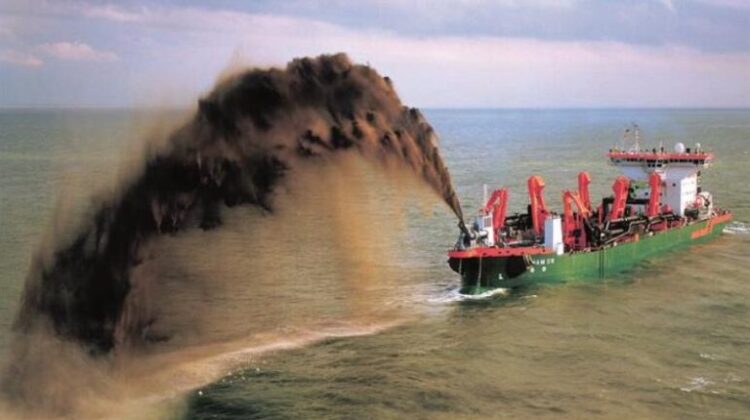
Kochi Port calls for dredge and deepen channel
The Cochin Port Trust has woken up to the virtues of deepening the channel of its container loading terminal, acknowledging that its transhipment ambition has been weakened by the channel’s inadequate depth of 14.5 m and fully aware of the challenges posed by the opening next year of a private, deep-draft transhipment port at Vizhinjam, just a few km away.
A proposal for deepening the channel has been sent to the government for consideration, a Port Trust official said. A deeper draft would allow bigger ships to dock and help tranship Indian containers in Kochi instead of Colombo, the preferred regional transhipment hub for exporters and importers.
The international container transhipment terminal (ICTT) at Vallarpadam in the Cochin Port was designed to cut India’s dependence on Colombo and save time and costs.
The deepening of the channel at ICTT is estimated to cost over ₹4,000 crore, an investment that will raise questions among the government’s policy managers on who will share the cost and how it will be recovered without making vessel-related charges too prohibitive for ships to call.
Even at the current depth of 14.5 m, the high vessel-related charges collected by the Cochin Port have been cited by ship owners as one of the reasons why Colombo scores over Cochin for mainline calls. To be sure, the Port Trust has been offering steep discounts for years to attract ships, but these offers have not helped much.
Dredging costs are typically recovered from ships calling at a port. Globally, this cost is paid by the government. But in India it is funded by the Central government-owned major port trusts, forcing them to pass on the cost to the ships.
The rising cost of maintenance dredging is already a concern for the port management. It prompted the Cochin Port Joint Trade Union Forum to call for sharing the dredging expenses among port users such as Indian Navy, Cochin Shipyard and the Coast Guard.
PM Mohammed Haneef, Chairman of the Forum, said the port management spends some ₹90 crore annually just to maintain the channel.
Handling bigger ships also calls for redesigning the channel, basin, berth and turning circle, entailing huge capital investment followed by increased annual expenditure for maintenance dredging. The question is whether there will be a return on investment and how the expenditure has to be shared as these plans are an extension of the agreement reached between the ICTT operator and the port trust.
“Increasing the depth will give an impetus to cargo moving out of Kochi directly to international ports, making it the best positioned Indian port located at least average nautical mile from all feeder ports to a major transhipment port,” said K Harikumar, President of the Cochin Chamber of Commerce and Industry.
Nearly 60 per cent of the container cargo handled at the Colombo port is of Indian origin and this will enable a major Indian port to handle Indian cargo in line with the government’s Atmanirbhar Bharat (self-reliant India) initiative, Harikumar said.
The recent congestion at the Colombo Port had forced the EXIM trade in Kochi to seek more mainline services to prevent delays and losses in shipping cargo via the neighbouring transhipment hub.
When the ICTT was conceived in the 1990s, the largest container ship was of an 8,000-container capacity with a draft of 14.5 m. Since then, container ship sizes have grown to over 20,000-container capacity with a draft of 16 m. Vizhinjam’s natural deep draft location and minimal maintenance dredging give it a huge advantage over Cochin in container transhipment.

